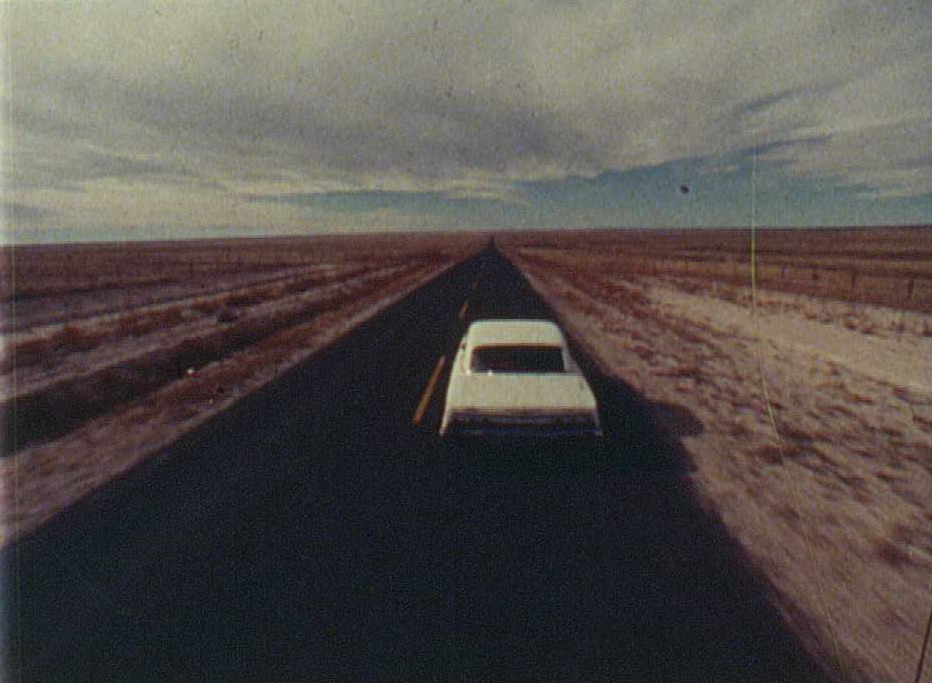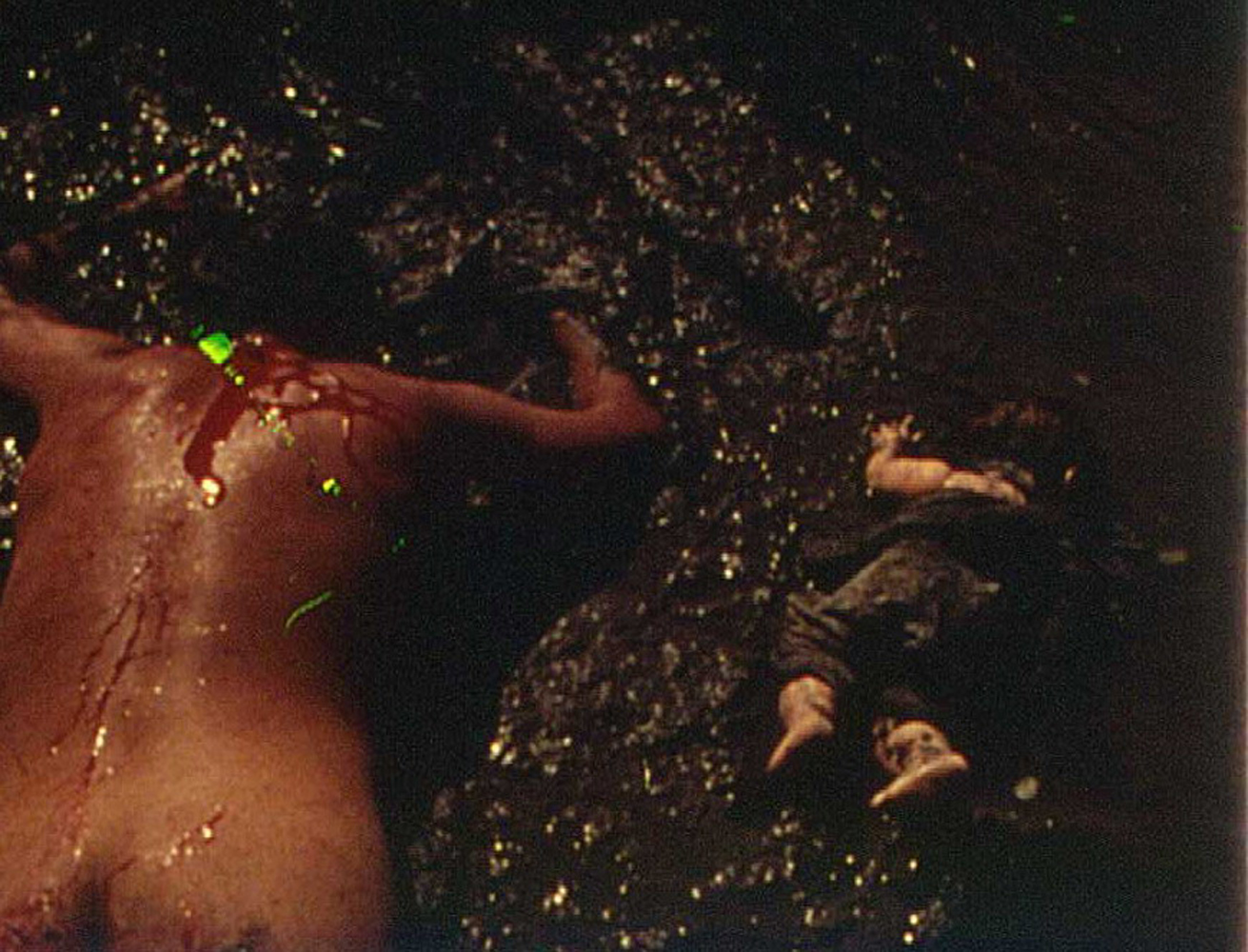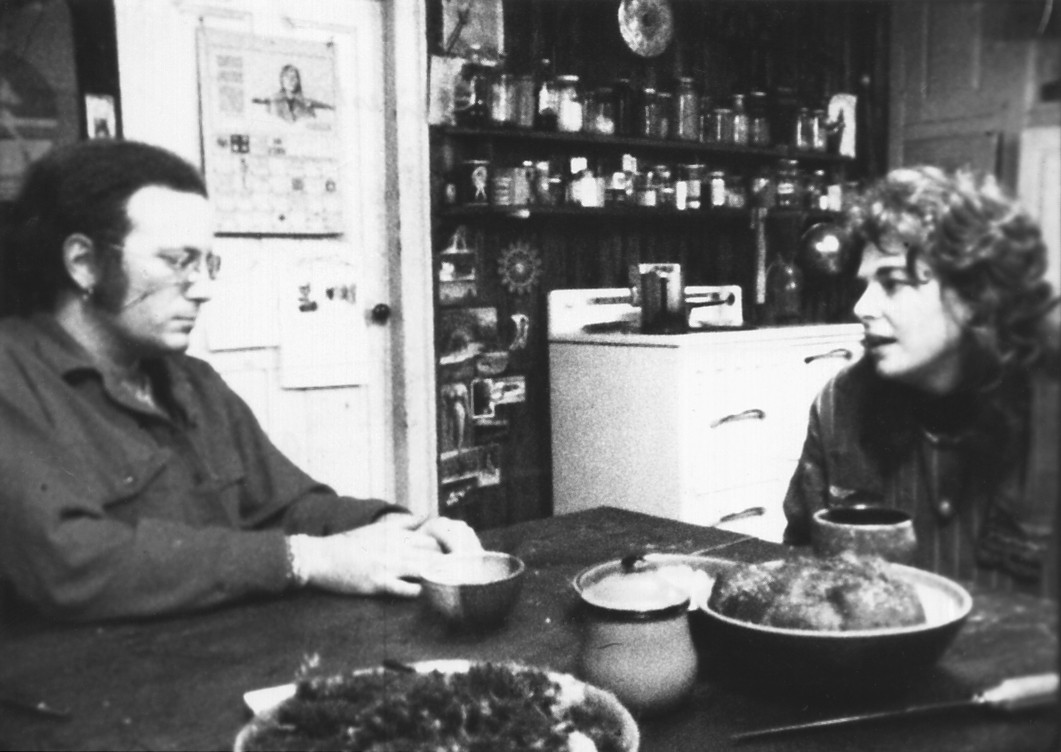 Erika Balsom
Erika Balsom
Revolution blues: a 1975 film charts the disappointment and isolation of former ’60s radicals.

Milestones. Image courtesy Icarus Films.
Milestones, directed by Robert Kramer and John Douglas, available to watch via Metrograph, November 5–11, 2020
• • •
In April 1975, shortly before presenting Milestones in the Directors’ Fortnight at Cannes, Robert Kramer and John Douglas composed an article introducing their new film. Rather than beginning in the expected places—the struggle of the Vietnamese people, to whom Milestones is dedicated, or the unraveling of the New Left, its ostensible subject—the text goes back farther, identifying the film’s determining context as the violent origins of the United States: Indigenous genocide, chattel slavery, the subjugation of nature. “This history,” they write, “is inseparable from the present.”

Milestones. Image courtesy Icarus Films.
Kramer and Douglas are undoubtedly right that the past is not past. Nonetheless, it is an unexpected way to frame a film that feels so much like a panoramic snapshot of a precise moment in time as experienced by one specific group of people. (When their piece was published a few months later in Cahiers du cinéma, paragraphs were reordered to offer a more conventional beginning.) Made just after US participation in the Vietnam War had ended, Milestones expansively charts the affective landscape of a radical tranche of the generation that came of age with the conflict. From May to October 1973, Kramer and Douglas wandered from Vermont to Utah, filming friends on 16mm in loose relation to a script. Across 195 minutes, dozens of interconnected people appear in scenes that range from overtly staged (a burglary, an attempted rape) to unquestionably documentary (a birth), with the bulk situated somewhere in the murky, fascinating middle.

Milestones. Image courtesy Icarus Films.
The fragile fiction of Milestones sprang from real experiences. Kramer and Douglas had both been part of Newsreel, a collective founded in 1967, devoted to documenting militant struggle at home and abroad in films that would, in Kramer’s words, “explode like grenades in peoples’ faces, or open minds like a good can opener.” By the turn of the decade, however, Newsreel was splintering; Ice (1969), set in a dystopian future in which Americans take up arms against a fascist government, was produced by the collective but released under Kramer’s name alone. Milestones emerged out of the fallow period of introspection that followed with a greatness inseparable from unwieldiness and uncertainty. Restless in the present to which it is so wedded, it fumbles for markers that might help gauge the distance traversed and point the way ahead. It is tempting to see Douglas’s character in the film as an allegory of its production and the broader political situation it dramatizes: he plays a blind potter, living communally with a boyfriend, who must feel his way through the act of creation, knowing he might miss the fissures in the vessel he seeks to bring into being. It is a far cry from Ice, in which women make pottery as a front for the supply of weapons.
Most of Milestones’ protagonists are, like the directors themselves, white, middle-class nonconformists who had been involved in the Movement in the late 1960s, only to be now left wondering how to live after a sense of disappointment and isolation has set in. Reconciling themselves to the realization that revolution isn’t just around the corner, they reckon with personal dilemmas and attempt to rearticulate their commitments. Milestones is a desultory portrait of this milieu and its malaise, tracing a mounting feeling of disconnection from organized struggles against oppression and a concomitant retreat into private life. As its characters variously experiment in communal living, wonder how to be good parents, and try to readjust after returning from prison or war, the film stays firmly on their side. This is not to say that it positions them as examples to be followed, only that the world of the film is the world of the filmmakers, as lacking in righteous surety as it is full of generosity. Fictionalizing their own experiences provides the group an opportunity for reflection, figuring almost as a therapeutic exercise, a working through of the problems they faced in actuality.

Milestones. Image courtesy Icarus Films.
Milestones came out in the same year as Robert Altman’s Nashville, both of them network narratives that follow the warp and weft of a distinctly American fabric. Yet whereas Nashville pictures a centripetal universe, in Milestones the totality never coheres. Its documentary feel emanates not just from its visual style but from the sense that it is composed of fragmentary glimpses snatched from life, with everything else lost to time and nothing explained. It is a mosaic of disintegration, replete with opacities and dead ends. The decision to represent one group of friends from the inside inflects the film’s horizontal sprawl with an insularity entirely absent from Nashville’s parade of public personae. Milestones has none of Altman’s interest in celebrity, none of his irony.
As different as the two films may be, they stand together in their conviction that there is something rotten about the country gearing up to celebrate its bicentennial. Altman starts with a stomach-turning musical refrain: “We must be doing something right to last two hundred years.” Kramer and Douglas provide a catalog of wrongs, bringing in all that history they deem so inseparable from the present, so fundamental to the film’s conception, in archival materials peppered throughout. Documenting settler colonialism, slavery, and US imperialism, these images occupy a curious status relative to the film’s emphatically white present. On the one hand, they are assertions of immediate context. On the other, they are emblems of non-relation, reminders of a growing chasm that point to the larger and longer struggles from which the protagonists are increasingly removed. They stage the impasse at the film’s heart: the personal is political and the political, personal, but this juncture is also a site of friction, open to manifold recombinations.
“I don’t think there’s anything more frightening than a private, selfish life,” says the author and activist Grace Paley in her role as Helen, a middle-aged filmmaker at work on documentary about Vietnam—and yet this seems to be the direction in which the film’s younger characters are headed. Maybe it appears that way only now, with the benefit of hindsight; despite all the disillusionment, Milestones concludes hopefully, not just with the ongoing production of Helen’s film, but with a birth, a metaphor of futurity and renewal. I wonder where that baby is today.
Erika Balsom is the author, most recently, of An Oceanic Feeling: Cinema and the Sea, published in 2018. She is a senior lecturer in Film Studies at King’s College London and writes criticism for publications including Artforum, Cinema Scope, and Sight & Sound.